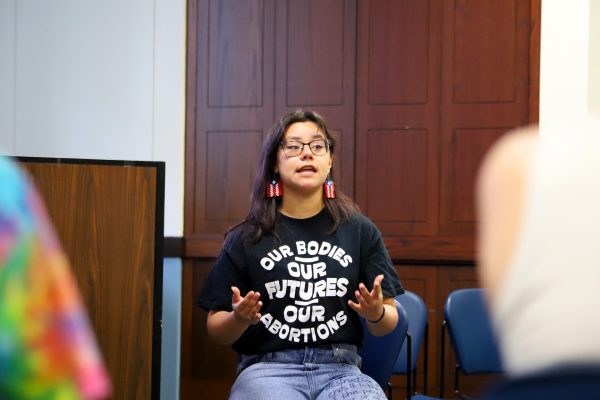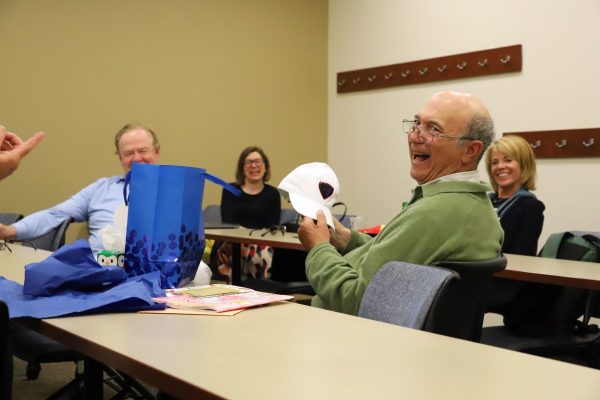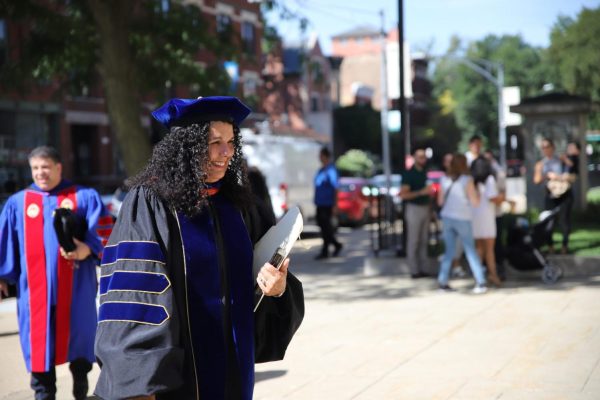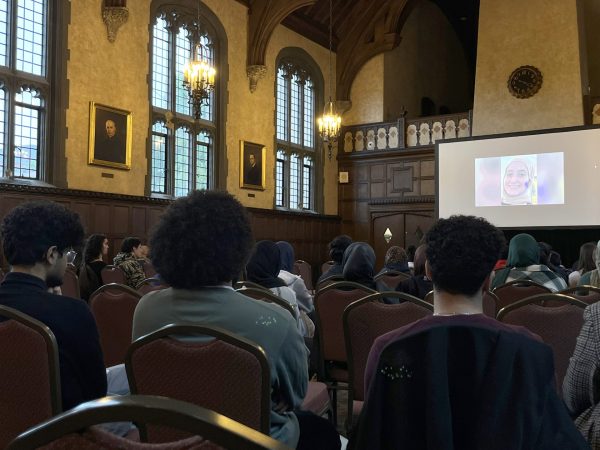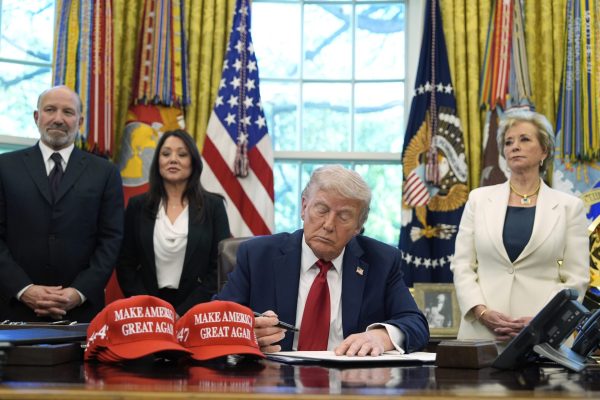DePaul’s Honors Program offers BIPOC courses taught predominately by white professors, students oppose
Credit: Eric Henry
Students walk around a mostly empty campus during the pandemic.
DePaul Honors Program students are calling attention to the university’s honors curriculum which offers classes on BIPOC issues that are taught by white professors.
In the fall, the Honors Program offered classes such as “Black Lives Matter” and “Social Justice Organization” that were taught by white professors and based on research, not lived experience.
“I don’t think that a white professor would ever be able to teach a class about issues surrounding BIPOC because they themselves have never experienced any of it,” said DePaul junior Sydnie Martin. “They can never really understand the deeper meanings of what they are teaching about, or how it impacts the students of color in their class.”
Students feel that racial dynamics like white privilege are factors that prohibit white people from understanding BIPOC issues at a complex level.
The Honors Program doesn’t have its own specific faculty, often using faculty from other departments to step in and teach these classes. According to students, these classes could cater to white students looking for a basic understanding of BIPOC issues, yet are trivial for students of color.
“Maybe for white students in the class, they may be helpful to get a starting understanding of what BIPOC goes through, but as a person of color in these classes, they often seem redundant and uninformative,” Martin said.
Former academic student representative for the Honors Program Ayyan Chaudhry said that he and his co-rep would bring up that these classes often were Euro-centric at University Honors Program curriculum meetings
“It just felt like when we would bring up concerns such as the classes being Euro-centric, they would tell us they can not really change that and it’s based on what professors choose to teach,” Chaudhry said.
Not only would Honors Program administrators leave it to the discretion of the professor, but would say that offering multicultural classes and programming would outweigh the budget limits, according to Chaudhry.
Academic representatives could speak at University Honors Program curriculum meetings; however, they could only vote on motions already put forth by the administration. They could not make any major change, Chaudhry said.
“If we think about it, our two votes as students could never sway the majority, as there were far more admin and faculty votes on the motions presented during the meetings,” Chaudhry said.
DePaul has said that it is dedicated to condemning racism and strives for diversity and inclusion. Martin said she believes these classes are antithetical to those statements.
“DePaul says they are committed to diversity, but when they cannot hire Black professors to teach classes that should be taught by Black professors, it makes it seem that their commitment to diversity is really just performative and a way for them to say they are doing better without doing better,” she said.
“I think it is truly laughable that DePaul says it’s committed to the ideals of diversity and inclusion yet hires white professors to teach on BIPOC issues,” Chaudhry said. “Moreover, there’s a lack of humanity in a sense [white professors] will never understand in a holistic sense the struggles of BIPOC folk.”
The Honors Program recently added a requirement that all honors students must take a course on racism and colonialism, according to Honors Program Director Jennifer Conary.
“We actively recruit faculty of color from across the university to teach in Honors, not just for our social justice courses, but in all areas of the curriculum,” Conary said in a statement to The DePaulia. “All of our faculty are experts in the subjects they teach, even though their own identities may not align with the topics of their courses.”
“Nevertheless, I’m sympathetic to students’ desire to take courses on racism from professors who have directly experienced it, and I hope that DePaul will provide departments with the means to hire more faculty of color, which — because Honors has no faculty of its own and depends on professors hired by departments — would allow us to staff our courses with greater diversity,” Conary said.
These multicultural classes are also in high demand; however, since a majority of the Honors Program is made up of white students, students of color are not prioritized in course selection, according to Chaudhry.
“They shouldn’t offer [these courses] with white professors just so that they can be offered,” Martin said. “I think sometimes that can be more detrimental than not offering the class at all.”



